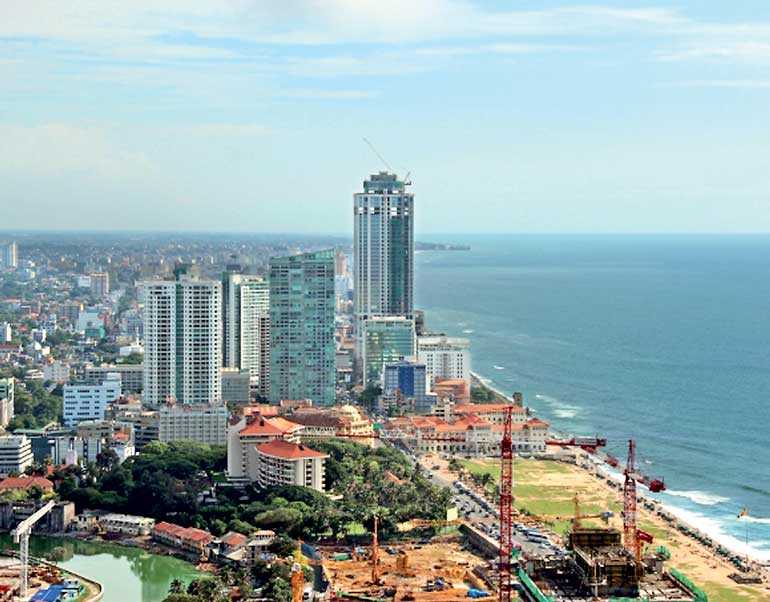Wednesday Feb 18, 2026
Wednesday Feb 18, 2026
Wednesday, 7 November 2018 00:50 - - {{hitsCtrl.values.hits}}

The new Doing Business ranking places Sri Lanka at 100 out of 190 economies, compared with 111 last year. This year Sri Lanka made it easier for businesses to register property, obtain permits, enforce contracts and pay taxes. Credit: World Bank
By Duvindi Illankoon
http://blogs.worldbank.org: End Poverty Day fell on 17October. Two weeks later, the new Doing Business rankings come out for this year.
If you’re wondering what the link is, here’s a quick summary: business-friendly regulations can be instrumental in lowering poverty at the national level.
This is one of those happy instances where economics, common sense and the data align.
A better regulatory environment encourages more businesses to register and expand, bringing more employers to the economy.
Then the market responds – notonly do these employers create more jobs, but also going to offer better jobs to attract capable workers to their companies.
Ultimately, a reliable source of income is the catalyst to moving out of poverty.
Sounds too simple? Trust the numbers.
Here’s something to think about: A 10% improvement in the overall Doing Business indicator results in a two percentage point reduction in the poverty headcount according to a study published this year.
Researchers analysing data for 189 economies from 2004 to 2016 found a statistically significant association between the general measure of business-friendly regulations (the overall Doing Business score) and the measures for getting credit and enforcing contracts with the poverty headcount.
Doing Business 2017 revealed that economies with a low Ease of Doing Business score (the measurement used by the index) also had a higher Gini-coefficient (which measures income inequality, the gap between the rich and the poor).
Here are five ways in which business-friendly regulations can contribute to reducing poverty:
1. Encourages economic growth led by the private sector. Private sector-led growth is the most sustainable way of generating good jobs to reduce poverty. Growth in both public and private sector spending has been linked to reducing poverty at a faster rate.
2. Helps to formalise the informal economy; two-third of the Sri Lankan economy is informal. This creates problems – illegalbusiness activities, below minimum wage-pay, poor working conditions, a lack of social security for employees to name a few. When businesses enter the formal economy (e.g. by registering with the Registrar of Companies or opening a tax file), they have to abide by standards - whether it’s to do with the products or services they sell, or how they treat their employees.
3.More registered businesses = more tax revenue to be spent on education, health, and social protection. These are key sectors that directly impact the lives of the poor.
4.Strengthens property rights. Property owners with registered titles are more likely to invest. The same applies to individuals. Research tells us that while the poor have access to land, this right is often not legally recognised – thisconstrains the use of property as collateral and as a source of income.
5.If private sector growth is inclusive it will increase women’s participation in the economy and improve their decision-making power. Evidence suggests that women make more astute decisions about their families’ health and education outcomes – onceagain, key to overcoming poverty.
What’s happening in Sri Lanka?
In Sri Lanka, the regulatory environment for investment is slowly improving.
The new Doing Business ranking places the country at 100 out of 190 economies, compared with 111 last year. This year Sri Lanka made it easier for businesses to register property, obtain permits, enforce contracts and pay taxes.
Ongoing reform efforts are gathering momentum as well, with their impact yet to be realised and measured by Doing Business. This progress includes:
So, what do you think? Have you benefited from these reforms yet? How can these regulators improve their service delivery to help you grow your business?We’d like to hear about your experience doing business in Sri Lanka, and whether you really think a better business environment can help the effort to end poverty and promote shared prosperity.
(Source: http://blogs.worldbank.org/endpovertyinsouthasia/doing-better-business-fight-poverty)